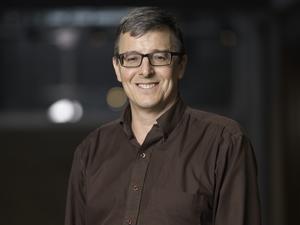
Rhaeos Inc. is just the latest medtech startup to land a big funding round for one of Chicago’s best-known inventors, John Rogers.
The Northwestern spinout — a clinical stage medical device company that detects the flow of cerebrospinal fluid in implanted shunts through a monitor — closed on a $10.5 million Series A funding round last week, bringing the Evanston, Illinois-based startup's total funding to more than $18 million.
Director of the school’s Querrey Simpson Institute for Bioelectronics, Rogers said that with the support of Northwestern, his startup model provides a path from advanced technology development work to academic research to eventually commercialization. Collaborating with the university's medical institutions has also been key.
"We have Sibel Health, Epicore Biosystems, Wearifi Inc. — all of them doing very well, funded at a high level, pursuing different technologies, and pushing to the next stage of scaling up, in many cases with partnerships with large companies," he said. "It's all built around engineering excellence, which is a little different than the California startup model."
His latest project is the first smart wearable device to continuously track how much people use their voices. The first-of-its-kind battery-powered, wireless, postage-stamp-sized device adheres to the upper chest to sense subtle vibrations that are captured in data that is streamed to the users' phone so they can monitor their vocal activities throughout the day.
The tech is expected to be a real game-changer for people who rely heavily on their voices, including professional singers, teachers, politicians, call-center workers and coaches. With the app, users can set a personalized vocal threshold. When they near that threshold, their smartphone, smartwatch or other device provides an alert to rest their voices to prevent pushing them too far.
The research behind the new technology was published in the Proceedings of the National Academy of Sciences, and Rogers doesn’t think it will be long before commercialization is underway.
For Rhaeos, for example, shortly after it appeared in a peer-reviewed journal in collaboration with neurosurgeons, Rogers received a number of inquiries that served as the impetus for starting the company.
“I think that, much like the Rhaeos platform, will represent a starting point for commercialization efforts,” he said. “I was just corresponding with one of the co-authors on that paper and I’ve personally received around 30 to 40 inquiries. There seems to be a strong need and interest in this technology.”
In fact, he expects the commercialization pathway for the voice technology because he doesn’t anticipate needing FDA approval, at least for an initial launch.
With “a couple of grant proposals in the pipeline to provide some initial financial support,” he said, “we have our manufacturing in place to enable that scale-up, and we’re right in the middle of starting to put together a startup company.”






